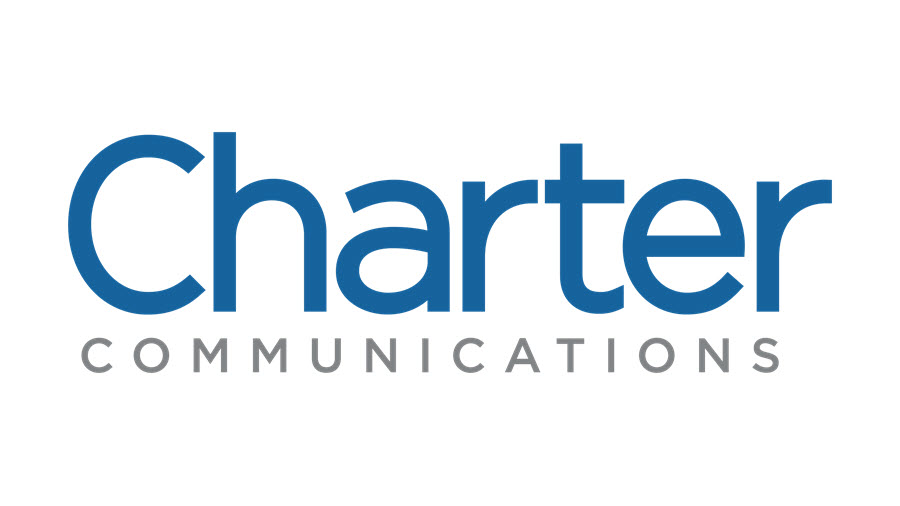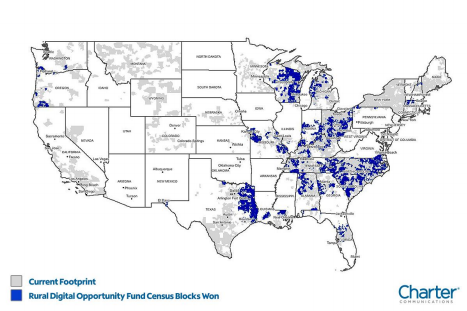Charter Launches $5 Billion, Multi-Year Plan to Expand Broadband to 1 Million New Homes
Investment includes $1.2 billion in Rural Digital Opportunity funding; will hire 2,000 employees and contractors for 24-state deployment

The smarter way to stay on top of the multichannel video marketplace. Sign up below.
You are now subscribed
Your newsletter sign-up was successful
Charter Communications unveiled a plan Monday to spend about $5 billion to expand its broadband network to underserved homes.
The initiative, funded in part by $1.2 billion the company received through the Rural Digital Opportunities Fund, will be in addition to the company’s ongoing edge-out programs to extend its broadband footprint. As part of the new plan, Charter said it will hire about 2,000 new employees and contractors.
Charter has been aggressively expanding its footprint over the past few years, partly due to conditions set for approval of its 2016 purchase of Time Warner Cable. Last year, the company expanded its homes passed by nearly 1 million homes.
Preparation for the expansion has already begun and Charter said it would expand its existing construction organization in order to focus on deployment of the network. The expansion will extend service to more than 1 million homes and businesses in 24 states: Alabama, California, Florida, Georgia, Illinois, Indiana, Kentucky, Louisiana, Massachusetts, Michigan, Missouri, New Hampshire, New Mexico, North Carolina, Ohio, Oregon, Pennsylvania, South Carolina, Tennessee, Texas, Vermont, Virginia, Washington, and Wisconsin.
Charter said it will offer 1 Gigabit per second (Gbps) high–speed broadband access to all newly served customer locations with starting speeds of 200 Megabits per second, enabling consumers to engage in remote learning, work, telemedicine and other applications that require high-bandwidth, low-latency connectivity.
"The pandemic has further highlighted the need for broadband availability and adoption and Charter is committed to furthering its efforts as part of the comprehensive solution needed to address these challenges," Charter chairman and CEO Tom Rutledge said in a press release. "As Americans across the country increasingly rely on broadband to work, learn, access healthcare and stay in touch with family and loved ones, bringing broadband access to more unserved areas should be a priority for all stakeholders. Charter's new multibillion-dollar buildout initiative further highlights the importance of the sophisticated broadband networks that the U.S. cable industry has built over several decades, and the industry's commitment to the local communities it serves. As we continue to help provide more Americans with reliable access to the internet ecosystem, our hope is that federal, state and local authorities, other private companies, pole owners and broadband providers will work together and play a pivotal role in expanding networks to unserved areas."
Charter said the initiative is reliant on several external factors, including utility pole permitting and "make-ready" processes. Because there are fewer homes and businesses per utility pole in these areas, the company will need access to multiple poles for every home served. As a result, pole applications, pole replacement rules and their affiliated issue resolution processes are all factors that can have a big impact on the length of time it takes to build into these rural areas.
The smarter way to stay on top of the multichannel video marketplace. Sign up below.
Pole attachment regulation has been an ongoing issue for the industry since its inception. Recently, NCTA- The Internet and Television Association, asked the Federal Communications Commission to clarify that they don't have to pay the full cost of replacing a utility pole when extending their networks into rural areas.
Earlier this month, the FCC issued a clarification that was a partial victory for the industry, prohibiting pole owners from charging full freight only when the sole reason for replacement is the operator's request to attach to that pole.
"The more cooperation we have with the pole owners and utility companies, the faster we can connect these communities with high-speed internet services,” Rutledge said in the press release. “We look forward to working with local municipalities, electric cooperatives, and investor-owned utilities to ensure that permits are obtained in a timely, fair and cost-effective fashion."

Mike Farrell is senior content producer, finance for Multichannel News/B+C, covering finance, operations and M&A at cable operators and networks across the industry. He joined Multichannel News in September 1998 and has written about major deals and top players in the business ever since. He also writes the On The Money blog, offering deeper dives into a wide variety of topics including, retransmission consent, regional sports networks,and streaming video. In 2015 he won the Jesse H. Neal Award for Best Profile, an in-depth look at the Syfy Network’s Sharknado franchise and its impact on the industry.

